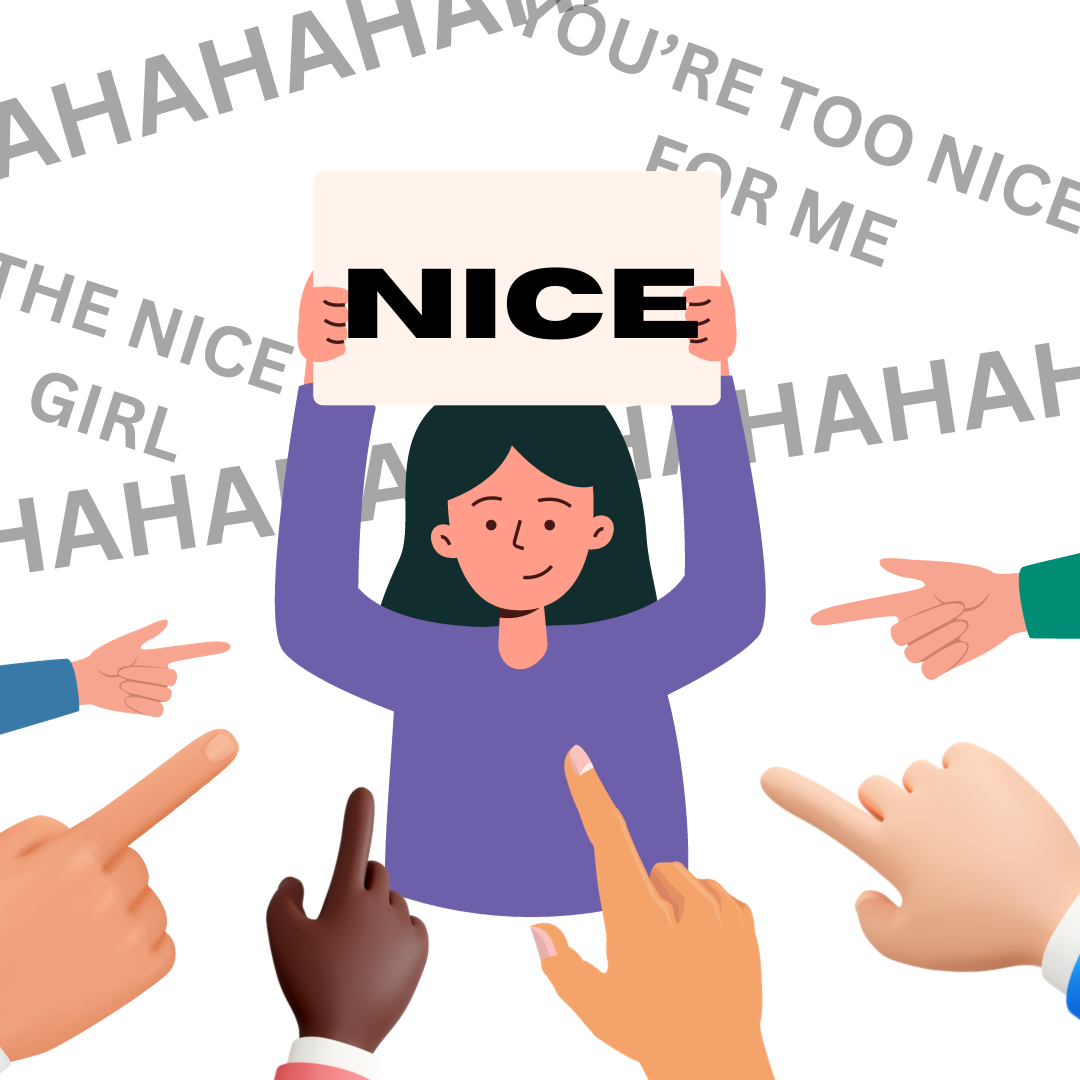According to the Merriam-Webster dictionary, some synonyms of nice include: polite, respectable, proper, and decent; all of which have positive connotations and denotations.
I was sitting in the journalism class one day, discussing uncomfortable situations. My friend, pointing out another friend, said something along the lines of: “She’s too nice to say anything though, if put in that situation.” And I agreed, before thinking, “Too nice?”
This made me think of a video I watched on social media. In the video, a man in a tuxedo was chasing after his runaway bride, who was desperately running away while screaming, “You’re too nice for me!” Granted, the video was scripted and meant for entertainment. Yet, there it was again, the term “too nice.”
At some point, society has started using the word “nice” to mean various things, including cowardly and exaggeratedly polite, almost to the extent that it becomes forced. In other instances, using ‘nice’ to describe someone may imply that they are bland, or lacking in character.
However, as kids, when the spectrum of adjectives to choose from when describing or introducing oneself was limited, “nice” and other positive adjectives with the same message were commonly used. In fact, many in my class even strived to fit into that category. So, what changed? Is this a societal trend that occurs as we age, when describing someone as “nice” has evolved to become a sort of mockery?
As it turns out, the original definition of “nice,” according to Dictionary.com, meant “unaware” and “ignorant” due to its derivation from the Latin word “nescius.” Therefore, in the first century in which “nice” was adopted in the English language, the term was used to refer to a foolish and absurd person, not a generous and polite one.
However, starting in the 16th century, “nice” was used to describe sophisticated and elegant clothing, oftentimes indicating luxury as well. This led to the word being used in a more positive setting and tone.
It can be argued that it is due to this seemingly abrupt change in connotation that led to its weightlessness today. “Nice” is indeed overused, as many English majors may agree. It can be used to describe anything from a new cafe down the street to a two-month vacation experience. As a result, the true intention behind “nice” can be vague, implying blandness or a lack of interesting features.
Of course, this implication is not always true. Context and tone are essential to understanding the speaker’s true intentions behind their usage of the word “nice.” One could still describe something or someone as “nice” while still purely implementing the dictionary meaning and positive tone that is supposed to come with it. However, due to this varying usage of the commonly seen word, it is important to correctly differentiate between its literal meaning versus its implied sarcasm. Afterall, especially considering how commonly “nice” is used ironically, the backhanded insult can easily overpass our heads.







